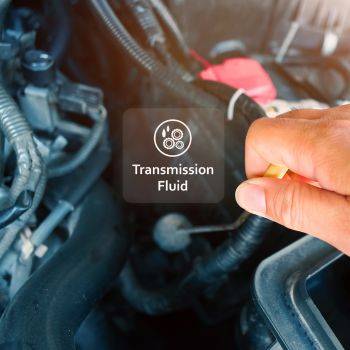Signs of Low Transmission Fluid
The transmission system plays a vital role in your vehicle by transferring power from the engine to the wheels. It also helps regulate the flow of power as you accelerate or decelerate, using a series of gears to make the process smooth and efficient. Beyond just moving your car, transmission fluid serves multiple functions. It lubricates all internal components, reduces friction, and helps dissipate heat. This makes it essential for both manual and automatic transmissions. Transmission fluid can change color and consistency over time. Fresh fluid is usually red or pink and has a clear appearance. As it ages, it may darken or become milky and cloudy, indicating it's time for a change. If the fluid level drops too low, your transmission may not perform properly. Here’s what can happen: It's generally recommended to change transmission fluid every 40,000 to 100,000 miles, depending on the manufacturer's guidelines. However, leaks from the transmission pan, gaskets, axle, or torque converter can cause the fluid level to drop more quickly. In addition to checking the fluid reservoir, keep an eye out for these common symptoms of low transmission fluid: Ignoring these signs can lead to serious damage, including complete transmission failure, which can be extremely expensive to repair. If you're concerned about your transmission or it's time for a fluid change, don’t wait—schedule a service appointment with DaSilva’s Auto Body today to keep your car running smoothly and safely. Intermediate Baritone,Baritone 3 Pistons,Baritone For Students,High Quality Professional Baritone ZhengOu Musical Instruments Co.,LTD , https://www.zomusical.com Have you noticed your car isn't shifting as smoothly as it used to, or do you hear unusual noises when changing gears? These could be signs that your transmission fluid is low. Understanding the importance of this fluid and recognizing the warning signs can help prevent costly repairs.
Have you noticed your car isn't shifting as smoothly as it used to, or do you hear unusual noises when changing gears? These could be signs that your transmission fluid is low. Understanding the importance of this fluid and recognizing the warning signs can help prevent costly repairs.What Is the Transmission System?
Signs That Your Transmission Fluid Is Low
